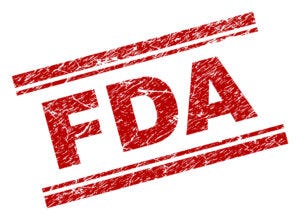
As the FDA draws closer to a decision on bluebird bio’s sickle cell disease gene therapy, Novartis has purchased the firm’s priority review voucher (PRV) for $103 million.
Bluebird’s gene therapy lovotibeglogene autotemcel (lovo-cel) is currently under US Food and Drug Administration (FDA) review for sickle cell disease in patients 12 years and older, with a decision anticipated by December 20, 2023.
“The potential sale of a priority review voucher would provide an important source of non-dilutive capital for bluebird ahead of the anticipated launch of lovo-cel,” said Chris Krawtschuk, CFO for bluebird bio.

DepositPhotos/NewDesignIllustrations
“As the FDA completes its review of lovo-cel, our team remains confident in the robustness and maturity of our BLA package for individuals 12 and older with sickle cell disease and looks forward to a regulatory decision by the end of this year.”
The transaction’s conclusion is still contingent upon lovo-cel’s approval, the FDA’s PRV, and customary closing requirements.
Previously, bluebird’s Zynteglo was approved in Europe in 2019 and received US FDA approval in 2022. Additionally, a couple of months before, the FDA granted approval of the firm’s Skysona (elivaldogene autotemcel, or eli-cel) for the treatment of active cerebral adrenoleukodystrophy (CALD).
However, in August 2021, bluebird announced its plans to discontinue operations in Europe. The company said it had encountered barriers to bringing patients therapies in Europe that have “proven to be insurmountable.”
Following conversations with European reimbursement authorities for Zynteglo, bluebird made the decision to cease operations in the EU and the UK. According to the firm, it was evident that European authorities “were unwilling to recognize” the potential curative value of this drug, which resulted in bluebird ceasing to carry on business as usual or find a collaborator to carry on the regional commercialization of its gene therapies.
Because of this, the company also revoked Skysona’s regulatory marketing license from the EU and the UK’s Medicines and Healthcare Products Regulatory Agency (MHRA).
About the Author
You May Also Like






